Culture in Belgium
Belgium's culture at a glance
Belgium is rich in cultural diversity and historical heritage. The country offers a fascinating insight into the fusion of cultures in Europe. Characterised by its location at the crossroads of Germanic and Romanic influences, the country offers a unique blend of Dutch, French and German cultural elements. This diversity is reflected in its architecture, languages, gastronomy and artistic traditions.
Belgium is famous for its medieval cities, outstanding works of art, lively festivals and an exceptional culinary landscape. Belgium's culture is characterised by its openness to innovation and creativity while remaining deeply anchored in its historical roots.
Belgian cuisine
Belgian cuisine is characterised by a unique blend of Germanic and Romanesque influences, emphasised by the use of fresh, high-quality ingredients. Famous for its beer culture, chocolate and French fries, it combines rustic simplicity with culinary innovation, making it a rich and varied culinary experience.
5 typical dishes from Belgium
1. Moules-frites
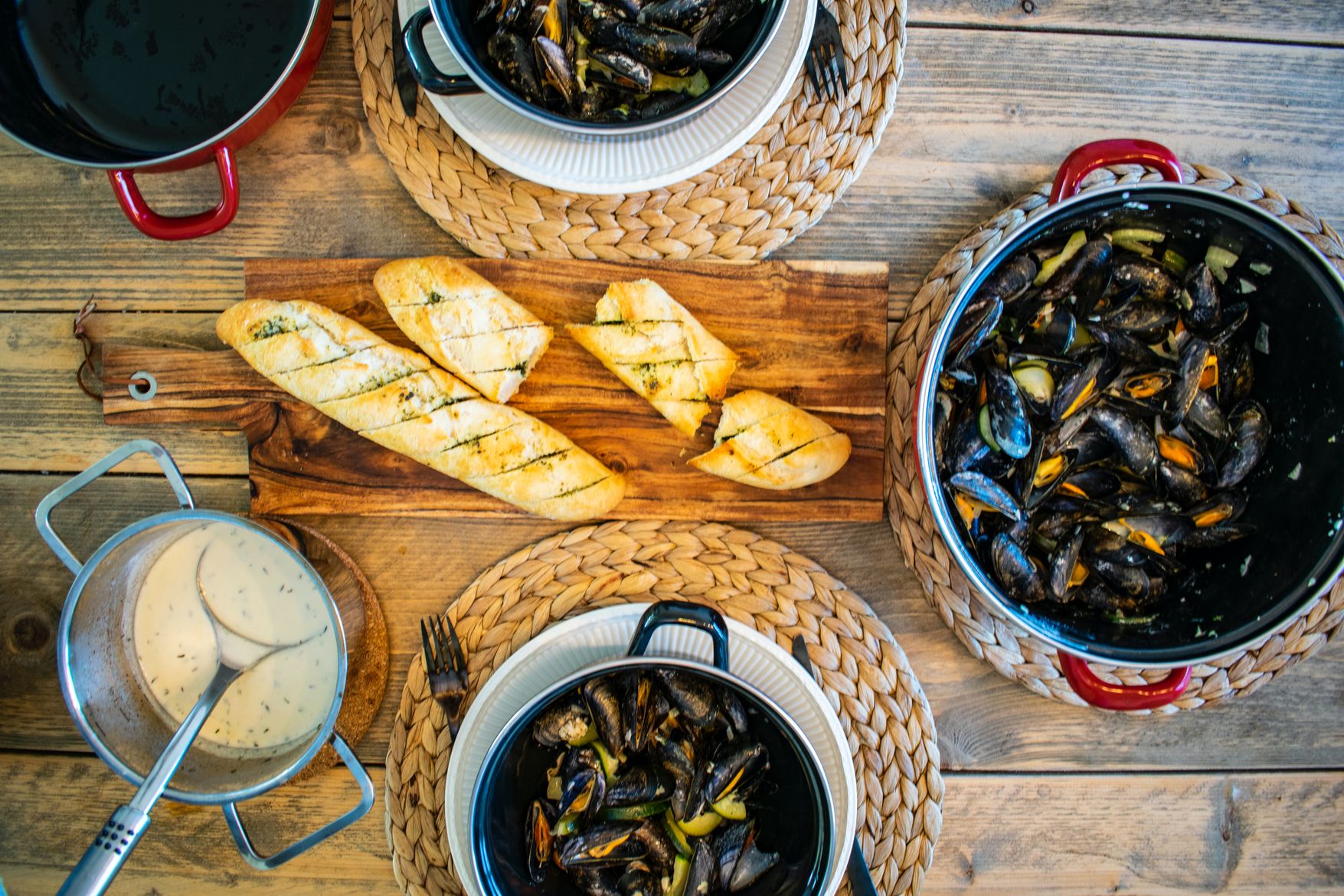
Moules-frites are a Belgian national dish from the French-speaking parts of Belgium. The dish is a delicious combination of fresh mussels and crispy fries. The latter are a favourite accompaniment to many Belgian dishes, as they were invented in Belgium.
The mussels are traditionally cooked in a flavoursome broth of white wine, garlic, onions and herbs. This simple but flavourful dish reflects the essence of Belgian cuisine: fresh ingredients and rustic charm.
2. Stoofvlees (Carbonade à la flamande)
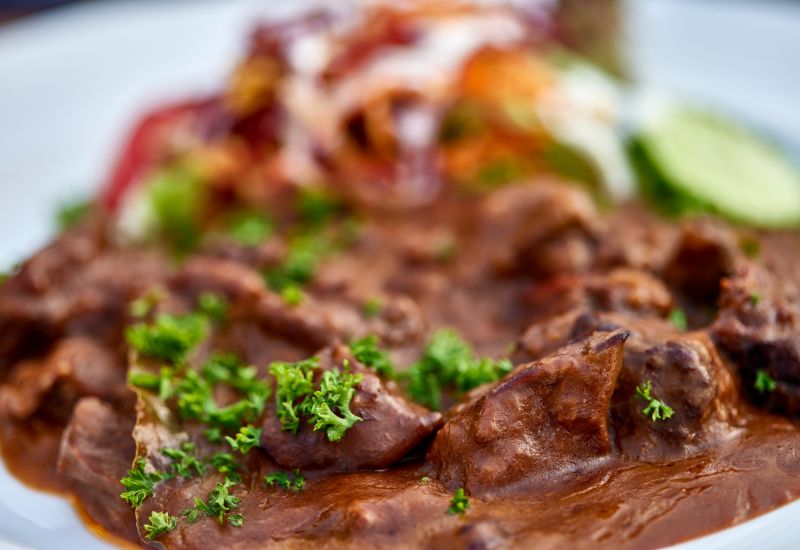
Stoofvlees or carbonade à la flamande is a classic dish from Flanders. The savoury stew is usually made by slow-cooking beef or pork goulash in Belgian beer, brown sugar and a mixture of onions, bay leaf and thyme. The combination of sweet malt and tart flavours creates a deep, rich taste. It is often served with chips or mashed potatoes (stamppot).
3. Chicon au gratin
Chicon au gratin is a traditional Belgian dish in which chicory is wrapped in ham and baked in a rich cheese sauce. The slightly bitter flavour of the chicory harmonises perfectly with the creamy, spicy sauce and the salty ham. A real treat for the palate, offering warmth and comfort.
4. Waterzooi
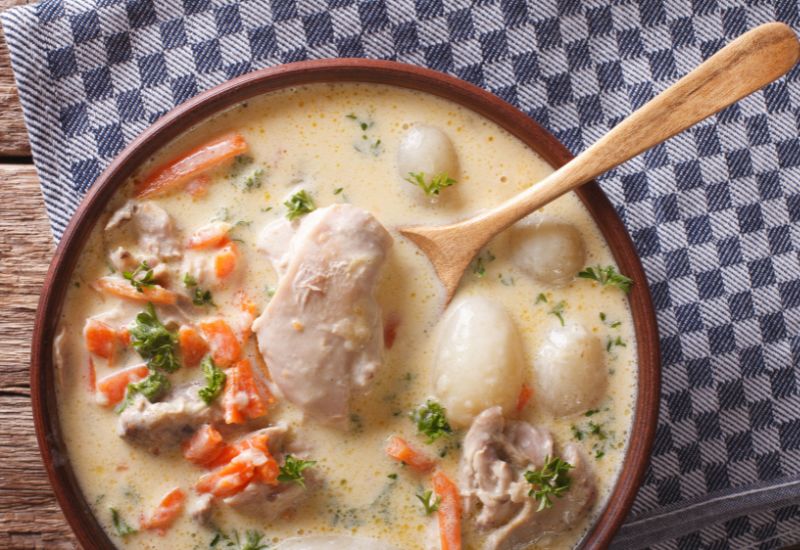
Waterzooi is a Belgian stew that originated in the Flanders region.It is prepared with either fish or chicken and served in a creamy, lightly flavoured broth.The broth is often enriched with vegetables such as carrots, leeks and potatoes. The savoury dish is a perfect expression of Belgian home cooking.
5. Belgian waffles
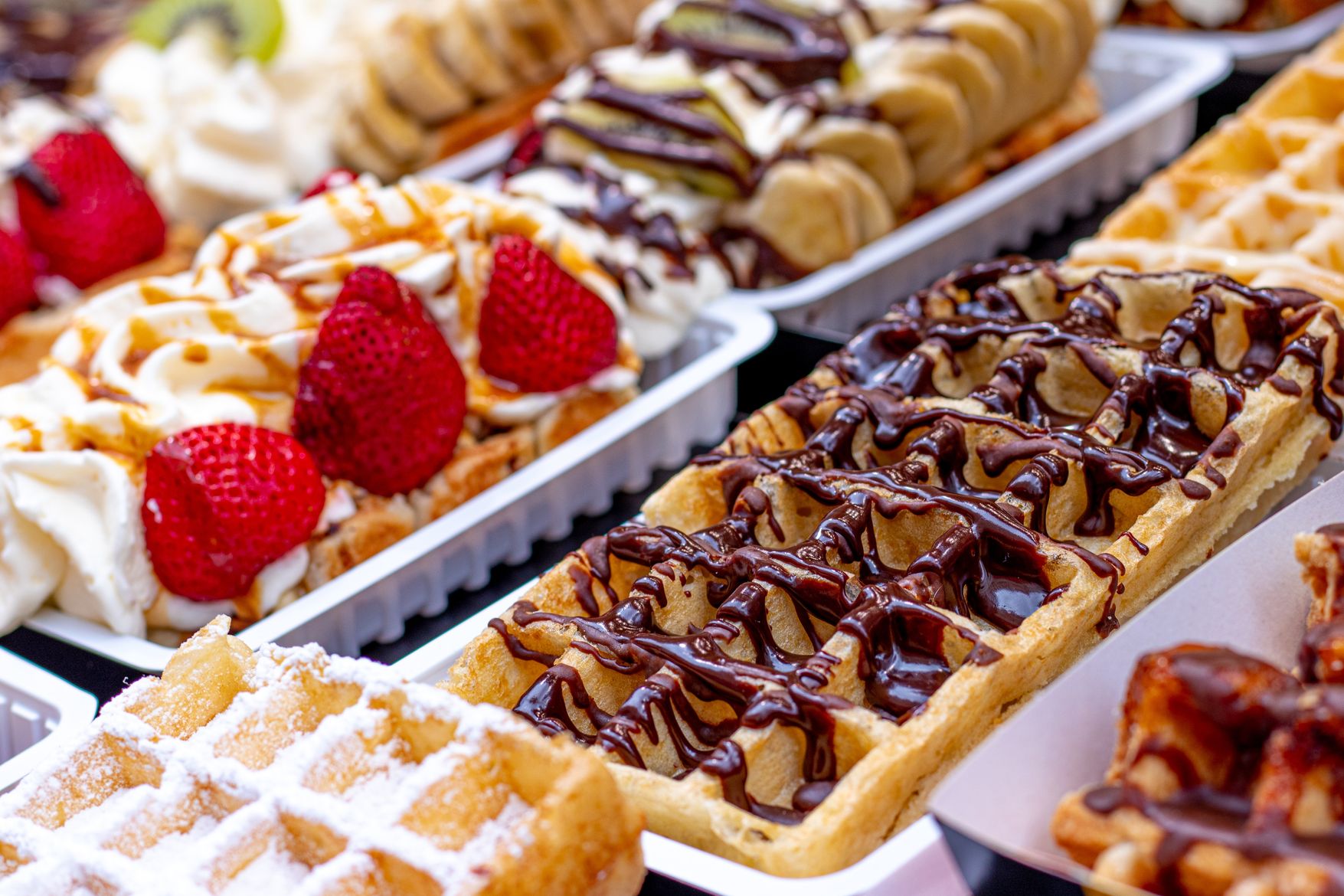
Belgian waffles are world-famous for their unique texture and size. They come in two main varieties. The Brussels waffle is large, light and fluffy. They are usually rectangular in shape and have 15, 20 or 24 square indentations, depending on the type. This makes them particularly easy to fill.
The Liège wafer is smaller, denser and oval in shape. It has 24 indentations, which are flatter than the Brussels wafer. Due to the embedded sugar pieces and the pearl sugar it contains, the Liège wafer is usually sweeter than the Brussels wafer.
Drinks
Overall, Belgian drinking culture is characterised by an appreciation of quality and variety, with a particular focus on local and traditional drinks. Socialising and enjoyment are often at the forefront.
Hot drinks

As in many European countries, coffee is an important hot drink in Belgium. It is typically enjoyed after a meal or throughout the day, often accompanied by a piece of Belgian chocolate or pastry.
Given the excellence of Belgian chocolate, hot chocolate is also a popular drink in Belgium, especially during the colder months.
Beer
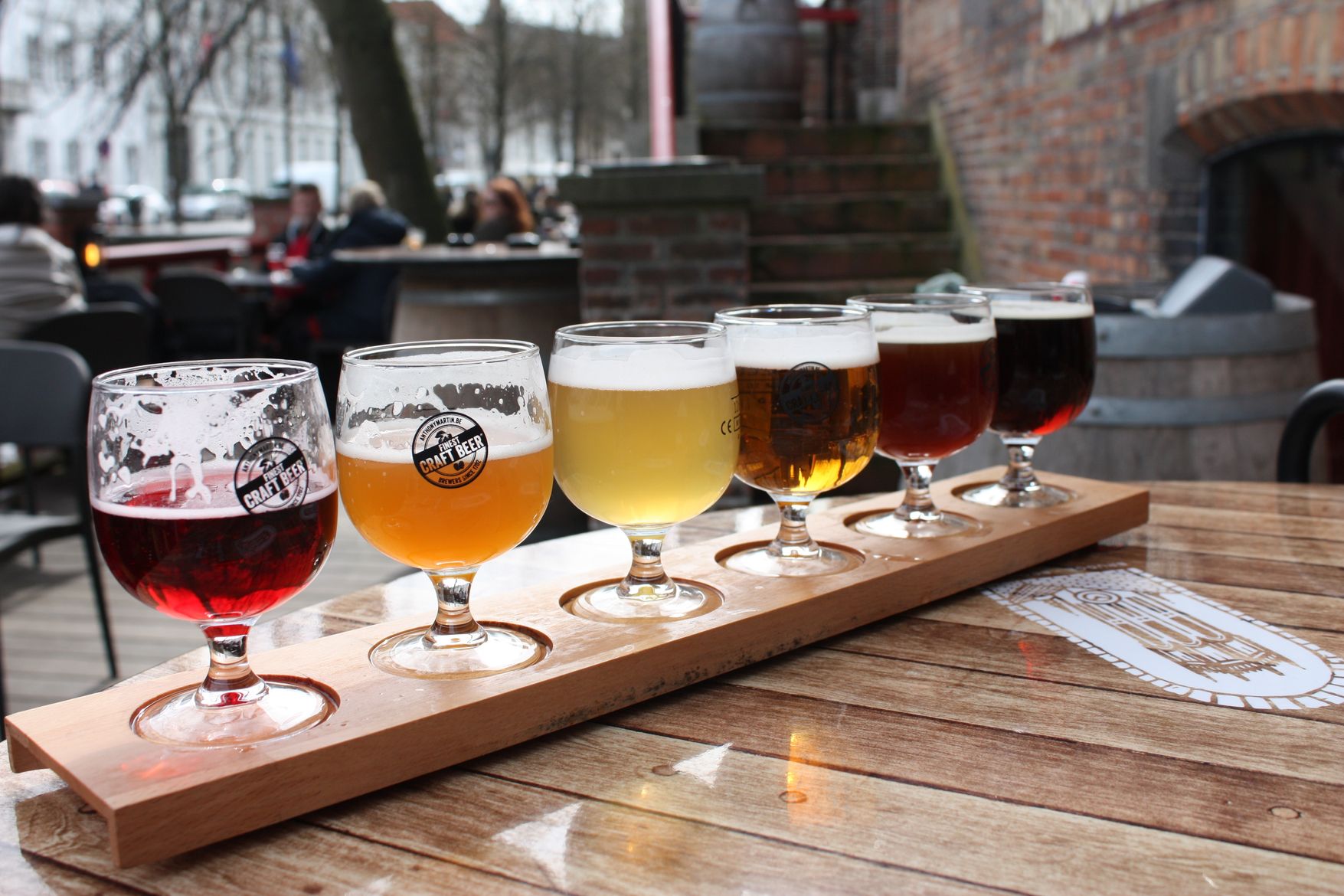
Belgium is famous for its beer culture. With over a thousand different types of beer, including Trappist beers, lambics, geuze and many other speciality beers, Belgium has one of the most diverse beer landscapes in the world. Each beer is often served in a specially designed glass to bring out its unique flavour.
Wine and champagne
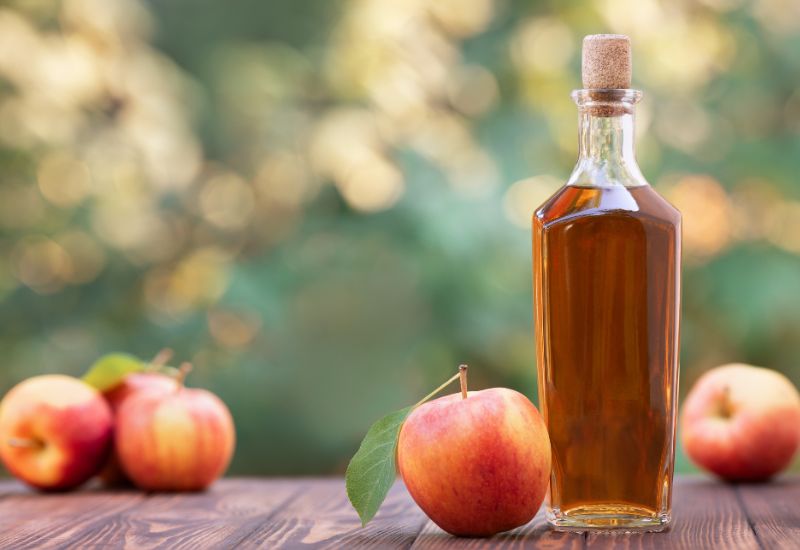
Although Belgium is not primarily known for its viticulture, there are a growing number of wineries that produce high-quality wines and even Belgian champagne. Cider is also popular in some regions of Belgium.
Traditional festivals and customs
These festivals and customs showcase the diversity of Belgian culture and offer unique experiences characterised by local history and traditions.
Carnival of Binche
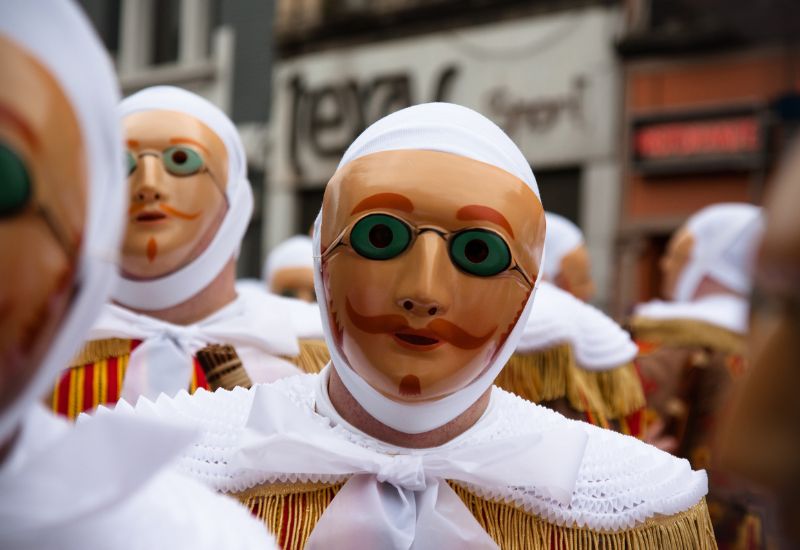
The Binche Carnival is probably one of the most famous and oldest customs in Belgium. It takes place in the town of Binche just before Lent. The main characters are the ‘Gilles’, who are dressed in colourful costumes and parade through the streets, playing music and throwing oranges.
Due to its high cultural significance, the Binche Carnival has been part of UNESCO's Intangible Cultural Heritage since 2008.
Ommegang in Brussels
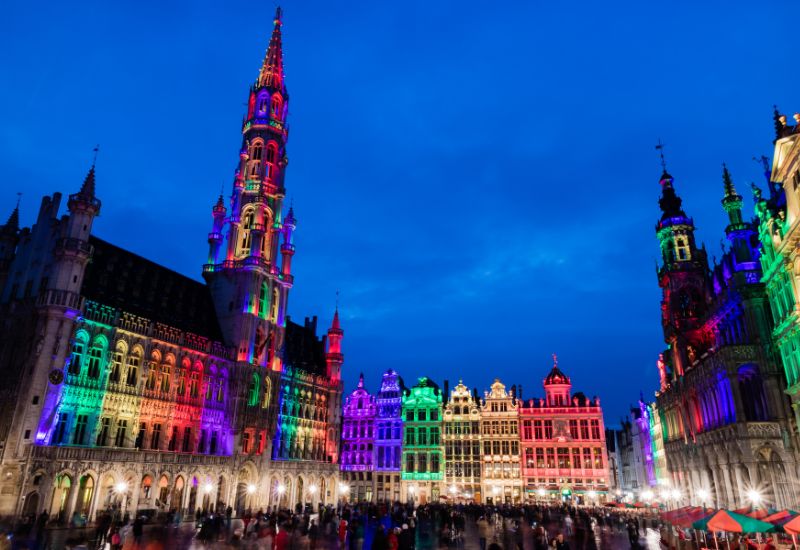
The Ommegang is a historical festival that takes place in Brussels every year at the beginning of July. It is a magnificent procession that commemorates the arrival of Emperor Charles V in the city in 1549. The parade includes historical costumes, jousting tournaments and medieval performances. Since 2019, the Ommegang has also been a UNESCO Intangible Cultural Heritage Site.
Gentse Feesten
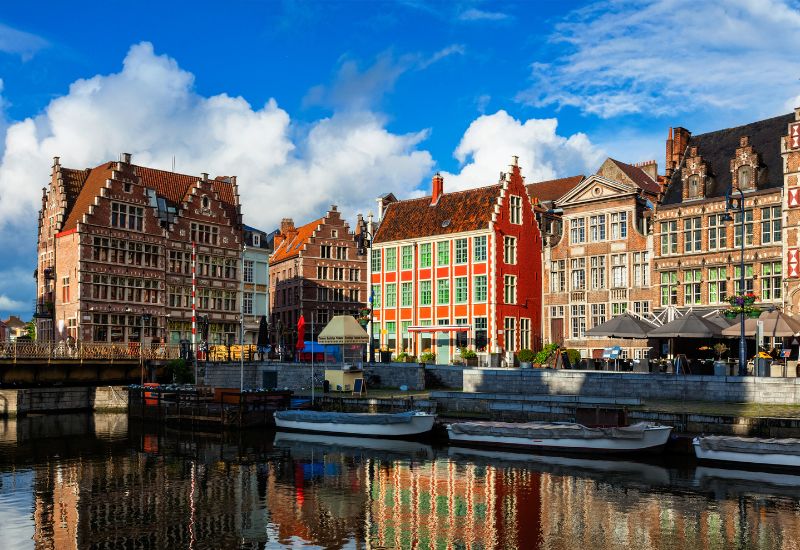
The Gentse Feesten is an annual music and cultural festival in the city of Ghent. The festival lasts ten days in July and offers a variety of events, including concerts, street theatre and art exhibitions.
Zinneke Parade
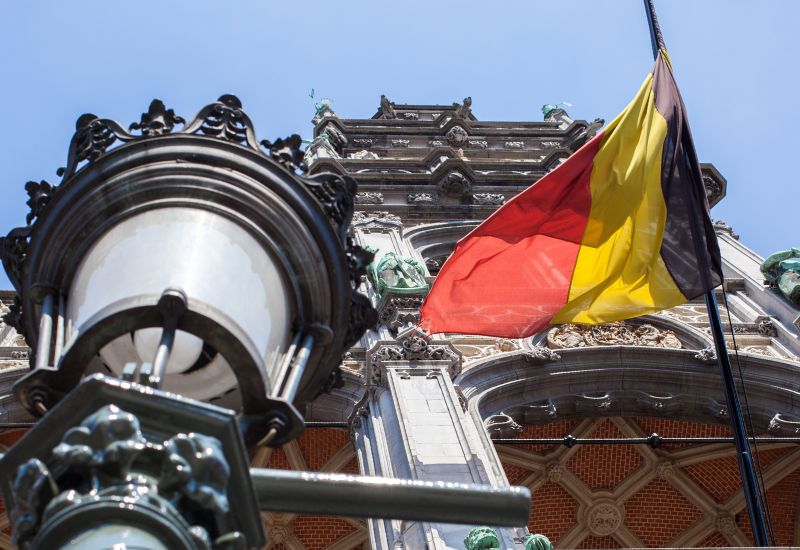
The Zinneke Parade is a biennial event in Brussels that celebrates the city's cultural diversity. It is a colourful, creative parade with participants from different communities, reflecting the fusion of cultures and the creativity of the city.
Conclusion: Experience Belgium's culture
In conclusion, Belgium's culture offers a rich palette of facets, ranging from historical depth to modern diversity. It reflects the heritage and spirit of a country that preserves traditions while breaking new ground.
Are you ready to gain new cultural impressions in Belgium?
Find out more here about toll regulations in Belgium so that you can travel around the country stress-free.
